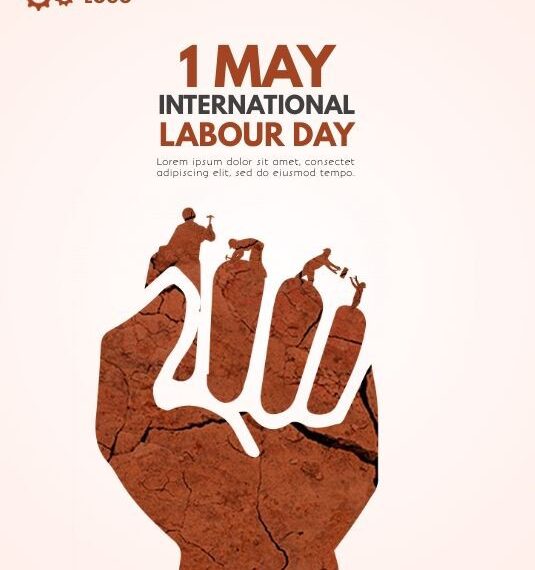International Labour Day, also known as May Day, is a day dedicated to celebrating the contributions and achievements of workers worldwide. In Kashmir, this day holds significant importance as it highlights the struggles, rights, and aspirations of the working class in the region. Let’s delve into the essence of International Labour Day in Kashmir and how it is observed.
The roots of International Labour Day trace back to the late 19th century when workers in the United States and Europe advocated for better working conditions, an eight-hour workday, and other labour rights. The Haymarket affair in Chicago in 1886 played a pivotal role in the establishment of May 1st as International Labour Day, commemorating the labour movement’s solidarity and resilience. The perception of Kashmir having a larger labour force compared to other regions is a topic that warrants a closer examination. While Kashmir does have a significant workforce, attributing it solely to a larger population or economic factors may oversimplify the situation. Let’s delve deeper into this topic to understand the dynamics of Kashmir’s labour force.
Kashmir’s population size is indeed substantial, with a diverse demographic that includes people engaged in various occupations. However, it’s essential to distinguish between population size and labour force participation rates. Many labours are even being targetted by terrorists in Kashmir as they are earning their livelihood, many incidents were seen where labours were targetted without any reason. This cowardly act should stop and the Authorities and Locals should take an initiative on these killings.A larger population doesn’t necessarily equate to a proportionately of larger labour force, as participation rates can vary based on factors such as age demographics, education levels, and economic opportunities. In Kashmir, International Labour Day is observed with a mix of commemorative events, awareness campaigns, and discussions on labour-related issues.
The day serves as a platform to acknowledge the invaluable contributions of workers across various sectors, including agriculture, handicrafts, tourism, and public services. While celebrating the spirit of labour, it’s crucial to address the challenges faced by Kashmiri workers. Unemployment, underemployment, wage disparities, lack of social security measures, and occupational safety concerns are some of the key issues that need attention. The informal sector, characterized by self-employment, small businesses, and informal jobs, is prevalent in Kashmir as it is in many other regions. This sector often employs a significant portion of the workforce but may not always be adequately captured in official labour force statistics. Additionally, unemployment rates can vary within different demographic groups, with youth unemployment being a particular concern.
The conflict and political instability in the region have also affected the economic opportunities and livelihoods of many workers. International Labour Day in Kashmir is not only about acknowledging challenges but also about empowering workers and advocating for their rights. Trade unions, civil society organizations, and government agencies collaborate to organize seminars, workshops, and rallies focusing on labour rights, fair wages, workplace safety, and social security schemes. Women form a significant part of the labour force in Kashmir, contributing immensely to various sectors.
International Labour Day emphasizes gender equality and highlights the importance of empowering women workers, ensuring their representation in decision-making processes, and addressing gender-based discrimination in workplaces. The globalized economy and technological advancements have also impacted the labour landscape in Kashmir. While these developments bring opportunities for skill enhancement and economic growth, they also pose challenges such as job displacement, informal employment, and the need for continuous up skilling to remain competitive in the market. The COVID-19 pandemic further highlighted the resilience of Kashmiri workers. Frontline workers, including healthcare professionals, sanitation workers, and essential service providers, demonstrated unwavering dedication and courage during challenging times.
The pandemic also underscored the importance of social protection measures and healthcare access for all workers. As Kashmir moves towards socio-economic development and peace-building efforts, it is essential to prioritize the well-being and rights of workers. This includes implementing labour laws effectively, promoting fair wages, providing skill development opportunities, ensuring workplace safety, and fostering a conducive environment for labour rights advocacy and collective bargaining. International Labour Day in Kashmir is not just a day of celebration but a reminder of the ongoing struggle for workers’ rights, dignity, and socio-economic empowerment. It reflects the resilience, unity, and determination of the labour community to create a more just and equitable society. As Kashmir progresses, it must ensure that the aspirations and well-being of its workers remain at the forefront of its development agenda.
INTERNATIONAL LABOUR DAY IN KASHMIR: CELEBRATING WORKERS’ RIGHTS AND CONTRIBUTIONS
A
A


